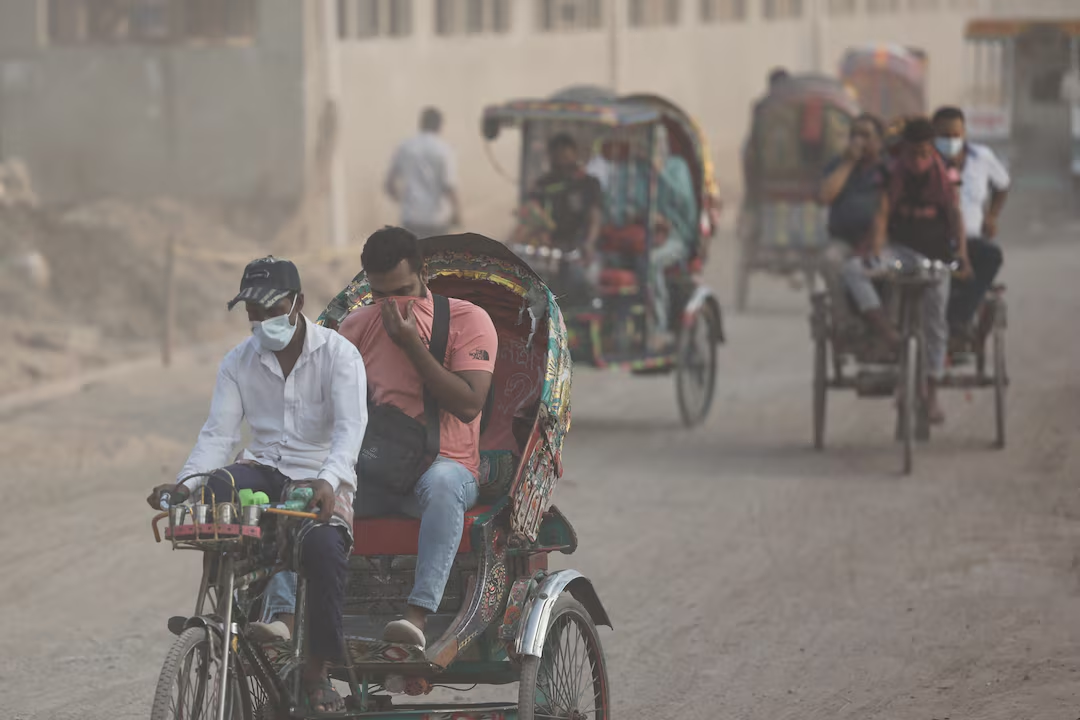
Only seven countries met World Health Organization (WHO) air quality standards last year, data showed on Tuesday, as researchers warned that the war on smog would only get harder after the United States shut down its global monitoring efforts.
Chad and Bangladesh were the world’s most polluted countries in 2024, with average smog levels more than 15 times higher than WHO guidelines, according to figures compiled by Swiss air quality monitoring firm IQAir.
Only Australia, New Zealand, the Bahamas, Barbados, Grenada, Estonia and Iceland made the grade, IQAir said.
Significant data gaps, especially in Asia and Africa, cloud the worldwide picture, and many developing countries have relied on air quality sensors mounted on U.S. embassy and consulate buildings to track their smog levels.
However, the State Department has recently ended the scheme, citing budget constraints, with more than 17 years of data removed last week from the U.S. government’s official air quality monitoring site, airnow.gov, opens new tab, including readings collected in Chad.
“Most countries have a few other data sources, but it’s going to impact Africa significantly, because oftentimes these are the only sources of publicly available real-time air quality monitoring data,” said Christi Chester-Schroeder, IQAir’s air quality science manager.
Data concerns meant Chad was excluded from IQAir’s 2023 list, but it was also ranked the most polluted country in 2022, plagued by Sahara dust as well as uncontrolled crop burning.
Average concentrations of small, hazardous airborne particles known as PM2.5 hit 91.8 micrograms per cubic metre (mg/cu m) last year in the country, slightly higher than 2022.
The WHO recommends levels of no more than 5 mg/cu m, a standard met by only 17% of cities last year.
India, fifth in the smog rankings behind Chad, Bangladesh, Pakistan and the Democratic Republic of Congo, saw average PM2.5 fall 7% on the year to 50.6 mg/cu m.
But it accounted for 12 of the top 20 most polluted cities, with Byrnihat, in a heavily industrialised part of the country’s northeast, in first place, registering an average PM2.5 level of 128 mg/cu m.
Climate change is playing an increasing role in driving up pollution, Chester-Schroeder warned, with higher temperatures causing fiercer and lengthier forest fires that swept through parts of South East Asia and South America.
Christa Hasenkopf, director of the Clean Air Program at the University of Chicago’s Energy Policy Institute (EPIC), said at least 34 countries will lose access to reliable pollution data after the U.S. programme was closed.
The State Department scheme improved air quality in the cities where the monitors were placed, boosting life expectancy and even reducing hazard allowances for U.S. diplomats, meaning that it paid for itself, Hasenkopf said.
“(It) is a giant blow to air quality efforts worldwide,” she said.











